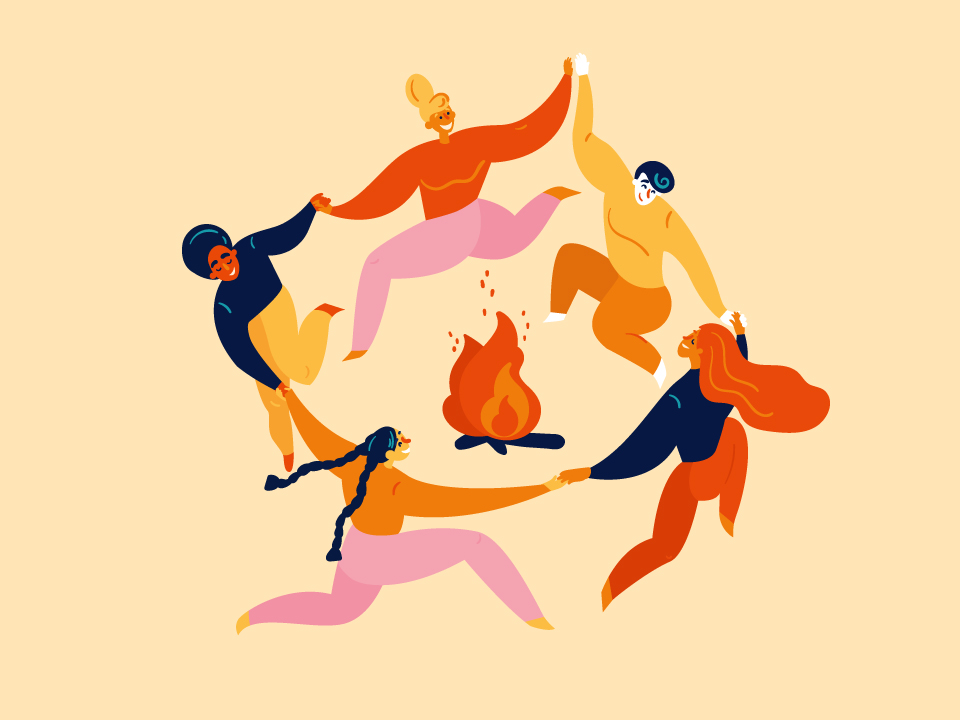Thanks to online dating, it has never been easier to find your perfect match. But with this increased opportunity for connection, and so many “options” at your fingertips, you may also experience a paradox where you are left feeling confused, disconnected, alone and disheartened.
Humans need intimacy and meaningful connections to survive, but we can often look for these things in the wrong places.
Whether you are swiping mindlessly on Tinder, fantasising about meeting your future partner at the supermarket, waiting for that text message after a date, entangled in past relationship hurts, overwhelmed by feelings of loneliness and rejection or swept up in feelings of hope and excitement (those butterfly feels), it’s easy to be taken away from the present moment.
Clinical psychologist and co-developer of The Mindful Self- Compassion Program, Christopher Germer, defines mindfulness as “awareness of [the] present experience with acceptance”. This practice encourages us to relate to our experiences with non-judgemental awareness, curiosity and openness.
Mindfulness gives you the power to choose how to respond to your moment-to-moment internal and external experiences, rather than react to things on autopilot. Approaching dating with mindful awareness, and relating to yourself and others with understanding and kindness, will allow you to ride the inevitable ups and downs of dating with greater ease.
How to practise mindful dating
- Be curious about your intentions. Reflect on what is driving your dating behaviours. Are you seeking company, connection, attention, affection, physical and or emotional intimacy or distraction from discomfort? Let this information guide you to make wise choices that align with your true needs. Perhaps having a catch-up with a friend or a date with yourself may meet your needs better than swiping on a dating app.
- Tune into your internal experience. Pause and non-judgmentally pay attention to your inner experience. Notice your body’s physical sensations (eg tension or ease), emotions (eg excitement or nervousness), urges (eg to cancel a date or seek physical intimacy), memories (eg of rejection or a past break-up) and thoughts (eg “they won’t want to see me again” or “I can’t wait to see them again”) without amplifying them our pushing them away. Acknowledge them, and then allow them to come and go.
- Practise external mindfulness. On your next date, try to observe your experience by engaging with your five senses: sight, sound, smell, touch and taste. Notice when your mind wanders and, when it does, remind yourself that this is normal for the mind to do and gently redirect your attention back to the present moment via your senses. For example, notice the smell of your meal, the colour of your date’s eyes or listen deeply to the conversation you’re having. See if this invites more presence into your experience.
- Let go. We can’t control the thoughts, feelings or behaviours of the people we date. Whether you are hooked on difficult emotions, playing out a scenario in your head or trying to understand why you’ve been “ghosted”, when you make the conscious choice to let go of what you can’t control and instead focus on what is happening in the here and now, and how you can respond to your experience with compassion, you may notice you feel more at ease. As author and Buddhist practitioner Jack Kornfield wisely suggests, “To let go does not mean to get rid of. To let go means to let be. When we let be with compassion, things come and go on their own.”
- Practise acceptance. Endings are an inevitable part of dating, and we often don’t get the answers we want in order to make sense of why things ended. Your mind may be trying to figure it out or you may attempt to seek clarity from said person, but being caught up in your head means you may not be present with your emotions. Try noticing your emotions and give yourself permission to feel your feelings (eg frustration, disappointment, sadness, rejection or grief), and practise accepting things as they are. Notice if this reduces your suffering at all.
- Allow yourself to begin again. Try to view each dating experience through a fresh lens. Acknowledge any assumptions or judgements you may be making about your current dating experience that could be based on your previous experiences. This is usually your mind trying to protect you. Thank your mind, and practise letting go of these thoughts by redirecting your attention to the here and now, focusing on what is, rather than what has been.
- Connect with your intuition. It is common to seek external reassurance and the opinions of others when dating. While this can be helpful, sometimes it can take you further away from your intuition. Try tuning into the wisdom of your mind and body, and let this guide you towards actions in line with your values.
- Practise compassion. All humans that embark on the vulnerable process of dating may feel excited and anxious among the highs and lows. It takes courage to put yourself out there, to be seen as your authentic self, and to sit with the unknowns that come with dating. Practise turning towards yourself and others with understanding and compassion because dating can be hard. It can be a nerve-wracking experience for all and connecting with a sense of common humanity reminds us that we’re all in this together.
Words KAITLIN McMANUS
Want to learn more about being connected?Visit our connected archived page




